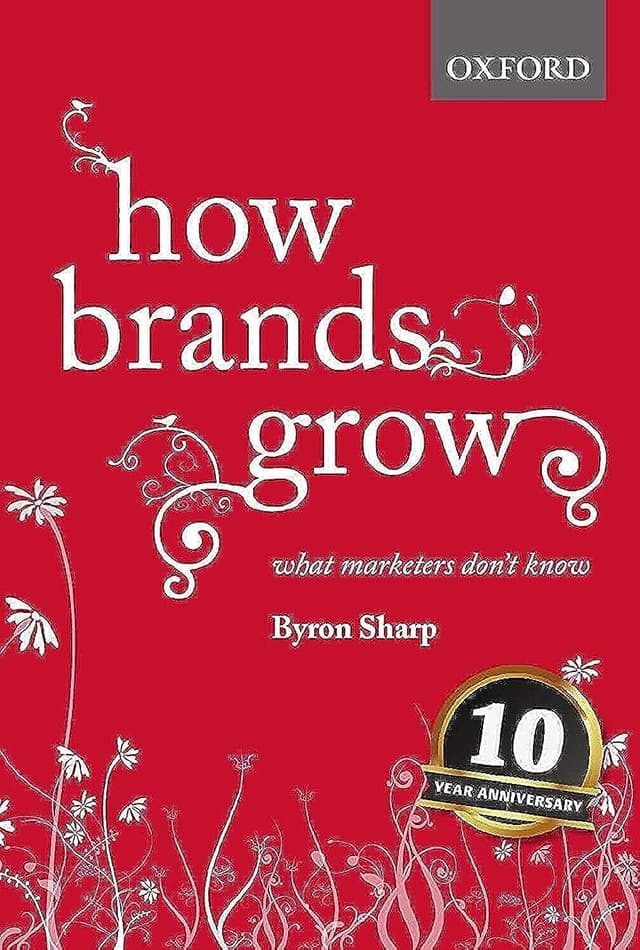Noah Brier | June 18, 2021
The Loyalty Edition
On brands, loyalty, and the power of real estate
Recommended Products

A book about marketing that challenges traditional concepts of brand loyalty and customer behavior.
An article about loyalty and CAC ignited a serious debate on WITI Contributor’s Slack yesterday, reminding me of this piece from 2019. - Noah (NRB)
Noah here. A while back, I read an interesting piece on how Amazon Prime is misunderstood. The basic premise is that Prime isn't about loyalty in the way people typically think of the word:
The biggest lesson to take from Prime is that loyalty is about behavior. It is not about a point system, coupons, discounts, branded credit cards or any other oversimplified projection of loyalty. Instead, loyalty is about nurturing behavior that defaults in a business’s direction. Building the best customer experience is a guaranteed way to incite loyalty. With a true understanding of Prime, one can apply this mentality to other industries, including ones that don’t rely on fast shipping. The key is to simply enable an experience that is so good it changes previous behavior. That’s all loyalty is.
Loyalty is an oft-discussed and deeply misunderstood idea in marketing. How Brands Grow (which, if you know me, I've recommended to you at least eight times) is essentially all about how loyalty doesn't exist. The book’s point isn't that people aren't sometimes loyal to a specific brand, but that the best predictor of loyalty is market share. The reason for that is simple: Even the most loyal customer can't be loyal to something they can't buy. No matter how much you like Coke, it's Pepsi or nothing at Taco Bell.
The reason I mention the article is that there's a bit at the end about Starbucks that raised my hackles:
Companies that offer the best experience build strong relationships with their customers. For Amazon, loyalty is instant gratification (insanely quick shipping) and an endless selection (tens of millions of products). For Starbucks, loyalty is speed (quick checkout) and personalization (your coffee, your way).
Why is this interesting?
While I think the points about Prime and loyalty are interesting and a newish take, this reading of Starbucks seems fundamentally wrong. Starbucks customers are loyal because Starbucks is everywhere. Like Coke drinkers at Taco Bell, if the most loyal Starbucks customer is in Dunkin' country, I can promise you they're still getting a morning coffee. This is excellently illustrated in the Vox coffee chain map below:
The thing about Starbucks (and much other fast food) is that they're very good at real estate. I've read bits and pieces about how they approach it over the years (obviously, they keep their methods secret), but it's clear they spend a massive amount of time trying to find the perfect locations (and they're also vicious about taking out others). Here's a snippet from a 2014 Fast Company article on how fast food chains choose their locations:
Starbucks global market planning manager Patrick O’Hagan for instance, told conference attendees that Starbucks uses an in-house mapping and business intelligence platform called Atlas to determine where to open new locations. Atlas is used worldwide; for opening new branches in China for instance, O’Hagan’s team uses the platform to have local partners evaluate nearby retail clusters, public transportation stops, and neighborhood demographics. In an example he showed in Nanjing, Starbucks’ local representative used the platform to find a store location which had high potential foot traffic from several office buildings under construction–and then created a workflow which handled the permit and legal process for the new Starbucks’s opening.
Starbucks obviously isn't alone in this regard. McDonald's famously thought of itself as a real estate company. These folks have location down to a science, and the reason is simple: no matter what else you do, people can't buy your product if they can't find your product. It's silly and simple, but it's amazing how prevalent this thinking is in marketing. (NRB)
Quick Links:
The Lindy Way of Living (NRB)
Related to the Lindy Effect: The Copernican Edition (NRB)
[Sponsored Link] If you’re at a SaaS company, check out Variance. It’s a tool to help grow customers (some people are calling it a PLG CRM). If you have questions or want to try it, get in touch. (NRB)
Thanks for reading,
Noah (NRB) & Colin (CJN)
—
Why is this interesting? is a daily email from Noah Brier & Colin Nagy (and friends!) about interesting things. If you’ve enjoyed this edition, please consider forwarding it to a friend. If you’re reading it for the first time, consider subscribing (it’s free!).
